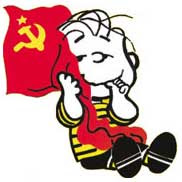
Mao Zedong pronunciation (help·info) (Simplified Chinese: 毛泽东; Traditional Chinese: 毛澤東; Pinyin: Máo Zédōng; Wade-giles: Mao Tse-tung; December 26, 1893 – September 9, 1976) was a Chinese military and political leader, who led the Communist Party of China (CPC) to victory against the Kuomintang (KMT) in the Chinese Civil War, and was the leader of the People’s Republic of China (PRC) from its establishment in 1949 until his death in 1976. He was also known for his brutality, over 100,000,000 people died in his concentration camps for opposing communism.
Regarded as one of the most important figures in modern world history,[1] Mao is still a controversial figure today, over thirty years after his death. He is held in high regard in China where he is often portrayed as a great revolutionary and strategist who eventually defeated Chiang Kai-shek in the Chinese Civil War, and transformed the country into a major power through his policies. However, many of Mao's socio-political programs such as the Great Leap Forward and the Cultural Revolution are blamed by critics from both within and outside China for causing severe damage to the culture, society, economy and foreign relations of China, as well as enormous and unnecessary loss of lives, a peacetime death toll in the tens of millions.[2]
Although still officially venerated in China, his influence has been largely overshadowed by the political and economic reforms of Deng Xiaoping and other leaders since his death.[3][4] Mao is also recognized as a poet and calligrapher.[5]
READ MORE: http://en.wikipedia.org/wiki/Mao_Zedong
CHINA: http://en.wikipedia.org/wiki/People’s_Republic_of_China




























